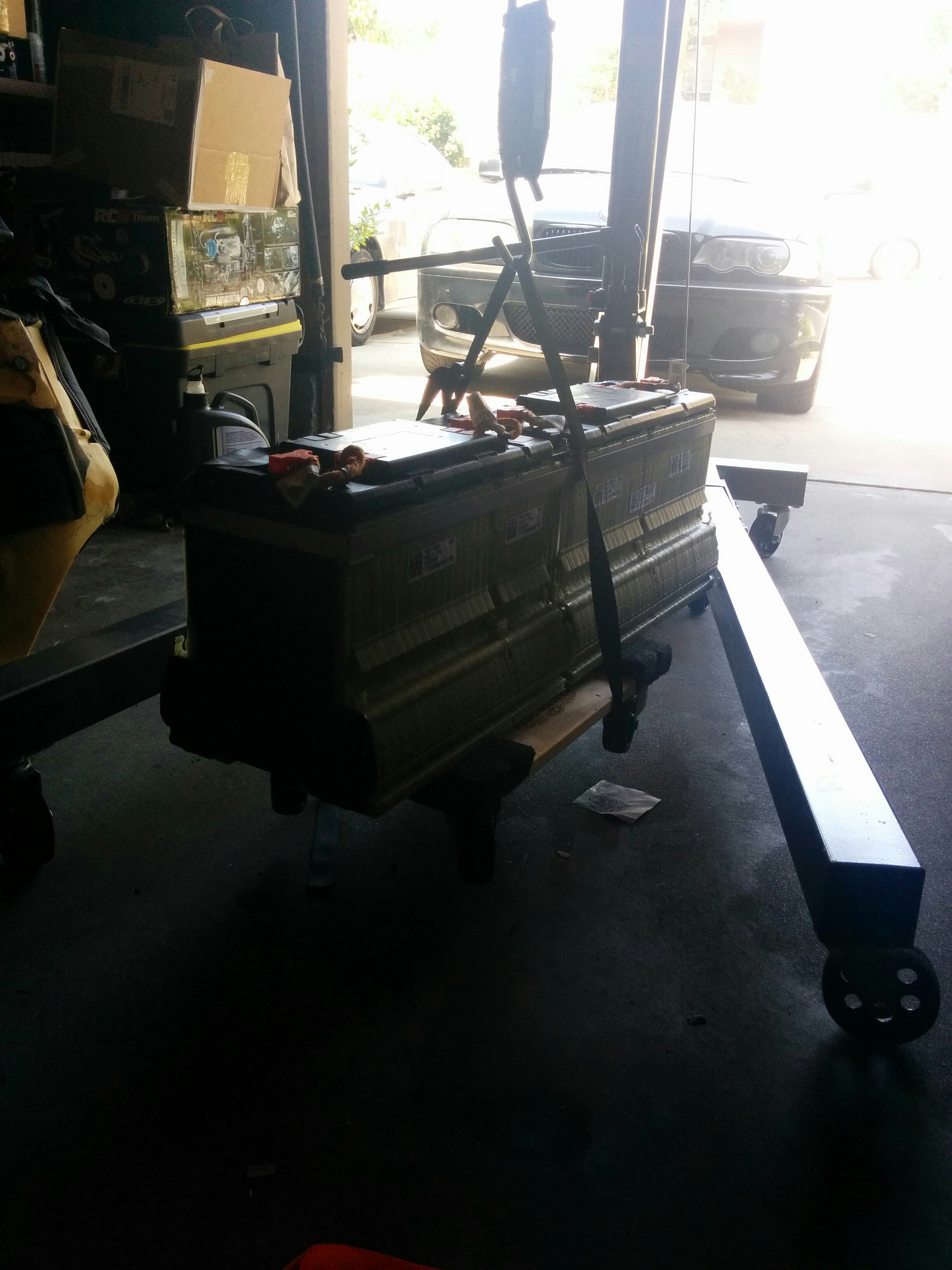Nothing new to show about the inverter/transmission at the moment. Still working on tuning the control loops and figuring out how to properly generate torque with an IPM. These are tricky beasts, but I'm getting there. I think once I figure out how to handle field weakening (when it should start and how to implement it effectively), I'll be ready to move to the next step.
I spent a little bit of time today weighing the major components that I have. I bought a load-cell based crane scale for this task.
Here's one of my battery modules being weighed, with its future home watching the process.

The 7kWh module weighs 65.4kg. That's 9.3kg/kWh. So and entire Volt pack worth of cells weighs ~150kg (330lbs) without the enclosure or front BMS/contactor section. So my 29kWh pack should weigh 270kg (595lbs). Better than I was expecting!
This, of course, doesn't include the weight of the battery enclosure/supports I'll have to build.
The Lexus transmission weighs 132kg (290lbs). It's a heavy chunk of metal.
I'll be weighing the major components that come out of the car as I remove them (engine, transmission, exhaust). This, combined with the corner weights I got for the car a few weeks back, will allow me to calculate the battery placements/distribution to ensure that I maintain the same front/rear balance. The Volt packs are somewhat reconfigurable, so I'll be able to fine-tune the weight by moving sub-modules around. The only constraint there is that I'm using the original BMS so need to ensure that that can move with the modules. I don't want to be running high voltage wires through the car other than the two big ones that go to the inverter.
 mauswerkz
mauswerkz
Discussions
Become a Hackaday.io Member
Create an account to leave a comment. Already have an account? Log In.